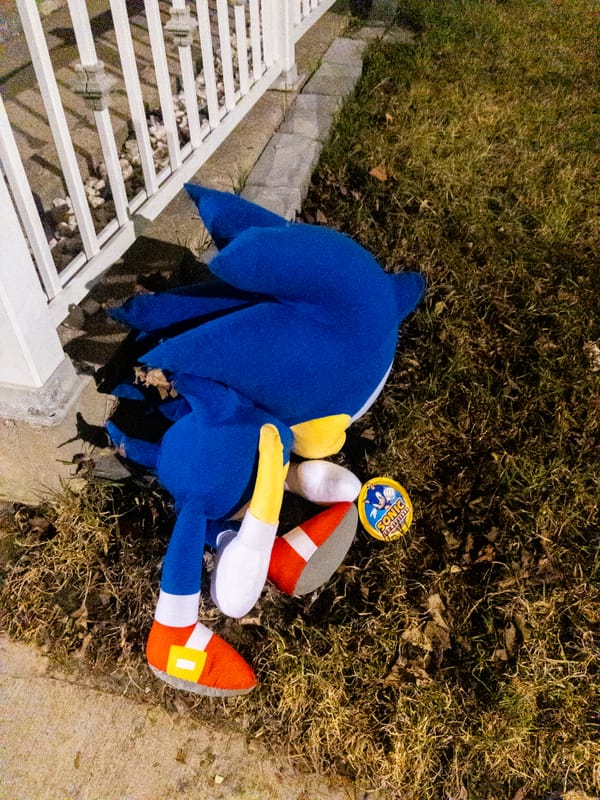Paved Paradise, Selling Cobain's Cigarettes
a short news hit, on the latest in the Cobain auction sphere
They’re selling Kurt Cobain’s cigarettes. A pack of American Spirits he left behind in the last rehab he inhabited before he died is being sold at auction for an opening bid of $200. Current bid – $1750, and climbing. These are the cigarettes he left behind in a room in Los Angeles when he fled, hopped a plane, saw Duff from Guns N Roses, where despite his animosity towards GnR he apparently had a nice chat and I believe this is in no small part to Duff being more a punk rock guy that an Axel and their shared history of struggling through addiction. The cigarettes he left behind when he took his own life at his home in Seattle, holed up alone, put Automatic For The People on and left this world in 1994.
Cobain ephemera is the swirling center of the nostalgia market. When I was a teenager I remember hearing a story that Evan Dando wore a sweater that was Cobain’s, given to Dando by Courtney Love. I don’t even know if this story was true, but I relished in the secret knowledge of this departed man being passed on from each troubled hand that held the threads of a worn out cardigan. Dando a man of his own unique and storied troubles, maybe this article of clothing was meant to bind the two men together, serve as a warning. Maybe this story isn’t real at all, but there’s a kinship there, a shared struggle by which people might embolden each other, even in passing. Lessons and knowledge passed by loose threads and intentional hands.
The guitar Cobain played on MTV Unplugged sold for $6 million, the Fender mustang he played in the video for “Smells Like Teen Spirit” sold for $4.5 million. Pieces of a life, sold and forgotten.
The cigarettes are only part of the auction, there’s a pair of jeans he wore in the video for “Heart Shaped Box”, a cassette, another cardigan, a poem, a handwritten note. Pieces of a life that sell the memory of a tragic man, an addict, the things we leave behind when we flee from ourselves. Ask anyone who has ever run from something or themselves and there is something they lost in the flight. I lost a knife, a mix tape. A car. A life.
I’ve been thinking still about the death of Matthew Perry, and the way outlets sensationalize headlines around his life as an addict. Interviewing friends about the last time they saw him and pulling out the parts where they say “he looked surprisingly good”, as a contrast to what you would expect for an addict who has died. Leading questions where you hope he looked bad, a reason, an answer.
He looked “sober”, in scare quotes, as if life is something owed only to those who are virtuous by way of sobriety.
In profiles of Cobain before he died, they talk about what he’s holding in his hands. A bottle of water. A cigarette. His daughter. It always feels presented in feigned surprise, written next to unflattering depictions of his physical appearance. Can you believe this sad looking drug addict drinks fucking water?
Cigarettes are a funny little mark of addiction. When I quit drinking, I started smoking more, even though I had quit once when I was in my 20s, and didn’t start again until I was 34, and even then it was only when I was getting high. Once I got sober, I smoked more. I drank more coffee. I had my little things and my little rituals that gave my anxious hands something to do, something to burn.
Cigarettes feel important somehow, the last little part of an addiction that hangs on when all the fun parts are gone. And it seems funny. It’s funny to sell the old cigarettes of a dead addict, because he’s not there to protest, or to tell you not to smoke a pack of American Spirits menthols from 1994. It’s the funny cache of a life to distract you from the fact that they are also auctioning off the private notes written by a man in rehab who was days away from taking his own life. It’s funny when dead people don’t matter, just the parts of them you can sell, the pieces stripped away until all is meaningless and the dead turned to dust without dignity.
There is a sickness to all of this. The way addicts are used in stories. The ideas of them used as warnings on road maps and reminders of morbid possibility. Remember the one thing about them they can never escape, even in death. Even if you morbidly read the note they’re auctioning off and you read the words of a man who is desperate to find peace he does not deserve it in death. Even now, they will sell his cigarettes as if each one might bring you closer to understanding and connecting to the life of a man long gone.
We rarely remember addicts laughing, triumphant, alive. Holding water, holding cigarettes, holding babies, holding on.
It’s funny and we all have our little jokes about Cobain’s cigarettes because what dignity does he deserve after all. It’s a great cover for the fact that the last little bits of his privacy are for sale to be bought and placed behind glass and used as a clever aside during awful dinner parties at some poorly decorated collection of artifacts by people just wealthy enough to be tasteless.
We have taken all the wonder and secrets and garbage and things left behind and sold them at auction to no real benefit but someone telling tired ears “those are Cobain’s cigarettes” as if by virtue of ignorant wealth they have achieved something great, that they are connected to some troubled genius. Not by an intentional thread passing from hand to hand but the macabre exchange of wealth for a dead man's smokes.




